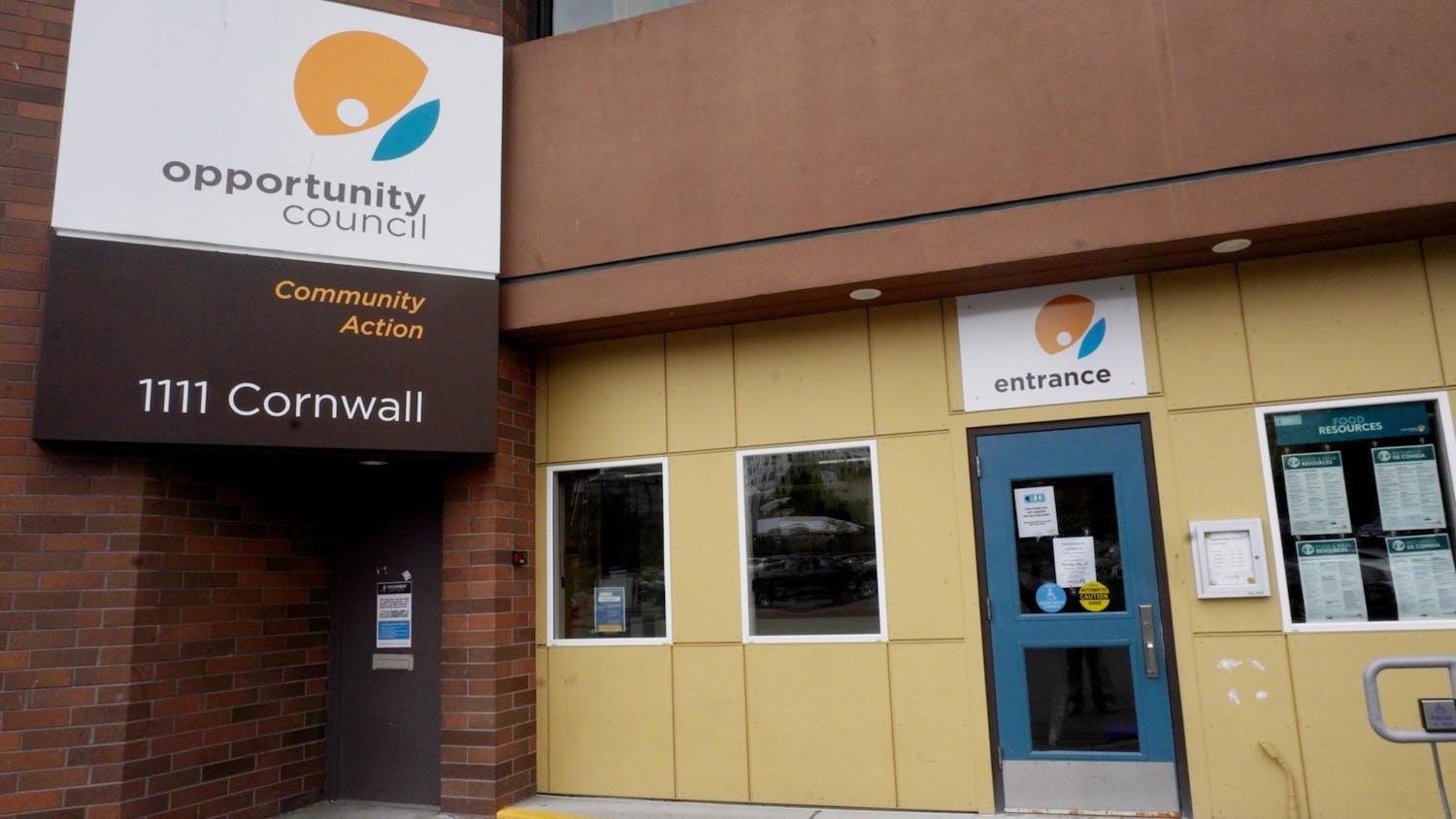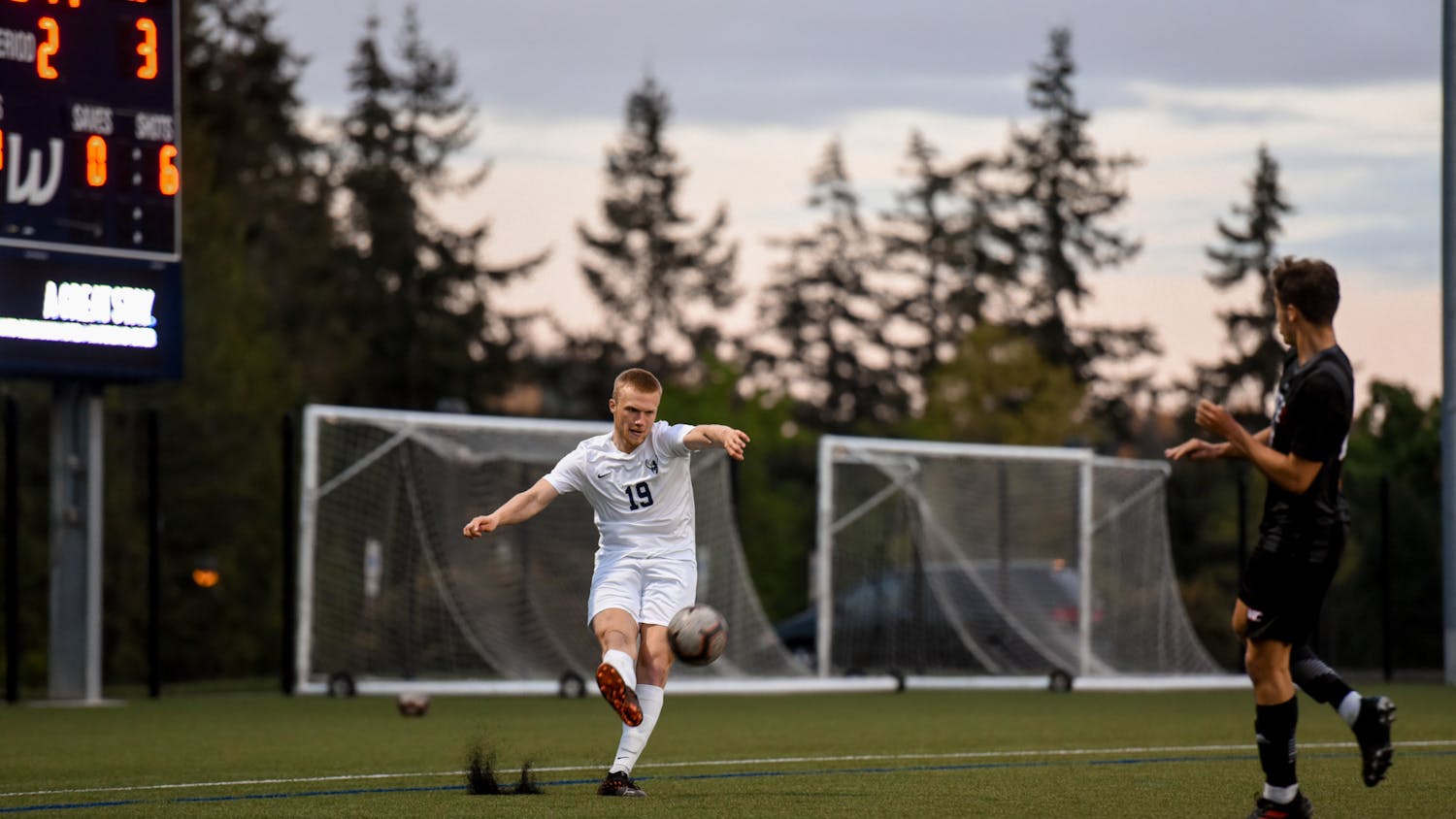As anti-abortion legislation prepares to go into effect in various states across the U.S., reproductive health services in Whatcom County are readying themselves for a potential increase in out-of-state patients.
Recent anti-abortion legislation includes Senate Bill 8 in Texas, which would prevent women from getting abortions after six weeks of pregnancy, and the leaked Supreme Court draft opinion to overturn Roe v. Wade. These legislative decisions have sparked controversy throughout the country, including in Whatcom County.
Protestors gathered at the Whatcom County District Court on May 3 for the Rally for Roe in Bellingham, as well as in a march from the Whatcom Transportation Authority bus station to the district and county courthouses on May 6.
Linda McCarthy, the CEO of Mt. Baker Planned Parenthood, said that the Whatcom locations of Planned Parenthood have seen an increase in out-of-area patients since the introduction of anti-abortion legislation in southern states.
“We are gearing up to be a partner and provide care for people who are moving all over the country,” McCarthy said.
She said that if Roe v. Wade is overturned, close to 36 million women in the U.S. could lose access to abortion services.
Iris Alatorre is the program manager for the Northwest Abortion Access Fund, an organization that helps provide funding for individuals to get abortions in Washington, Oregon, Idaho and Alaska. She said that the organization has seen a huge increase in patients in recent years.
The access fund supports almost 200 individuals on a monthly basis, Alatorre said. Of those patients, about 150 need support with the funding of the abortion procedure and around 20 need help with other logistical support.
About 50% of individuals who seek funding from the Northwest Abortion Access Fund are Idaho citizens, Alatorre said.
Idaho recently introduced a bill similar to Texas’s anti-abortion legislation, Senate Bill 1309, which would prevent women from getting abortions after a fetal heartbeat is detected. The Idaho Supreme Court temporarily blocked the bill from passing, but it will likely go into effect if Roe v. Wade is overturned.
Alatorre said that ever since the announcement of Senate Bill 8, the access fund has seen an increase in people from Texas coming to the Pacific Northwest for reproductive care.
“We have been working with funds from southern states pretty closely to kind of make that as smooth as possible for people, because we want them to be able to get all the support they can,” Alatorre said.
Meixing Rain, a 19-year-old Bellingham resident, helps run a pro-abortion rights Instagram account, ProChoicePrincesses. She and her friend Lauren Duett started the account together in 2020 to organize pro-abortion rights protests outside the Bellingham Planned Parenthood location.
Rain and Duett would often drive by Planned Parenthood and see anti-abortion protestors outside, speaking to patients entering the facility.
Rain said their main goal was to make patients feel safer when they entered the building. She said she has had personal experience with anti-abortion protestors harassing her when she herself was a patient entering Planned Parenthood.
“You’ve got these people using religious beliefs to make you feel small and make you feel like you’re making the wrong decision to go in there, even if it’s not for an abortion or anything like that,” Rain said. “So it’s really just to make others feel comfortable and safe going in there.”
McCarthy said that the Bellingham Planned Parenthood has seen an increase in anti-abortion protests since the development of recent anti-abortion legislation, and that they have been growing more vocal.
“It upsets patients,” McCarthy said. “They yell at every patient who walks through our door.”
She said that sexually transmitted disease testing and birth control are the two services used most often at Planned Parenthood.
The Northwest Abortion Access Fund is rooted in reproductive justice, which covers more than just abortion rights, Alatorre said. She said reproductive justice embodies racial and economic justice, as well as the right to parent, start a family safely and practice reproductive health.
She said that even if abortion is legal, it can still be largely inaccessible for many people, which is why abortion funds exist.
“All of these communities that have experienced the most marginalization in our nation are going to be the ones most affected by these abortion bans,” Alatorre said. “Providing someone with the support to get an abortion is also racial justice, and it’s also economic justice.”
In light of the recent Supreme Court draft that would overturn Roe v. Wade, McCarthy said that even if abortion becomes illegal, people with means were always and will always be able to get abortion care.
“Our goal is to make sure that everybody is able to get abortion care if that’s what they want so that we can equalize the playing field and help people access that care,” McCarthy said.
Jordan Oliver (she/her) is a city life reporter for The Front. She is majoring in sociology with a minor in journalism. When not working or studying, she enjoys photography, bouldering, drinking overpriced coffee and watching tv shows about pirates.
You can reach her at jordanoliver.thefront@gmail.com.






